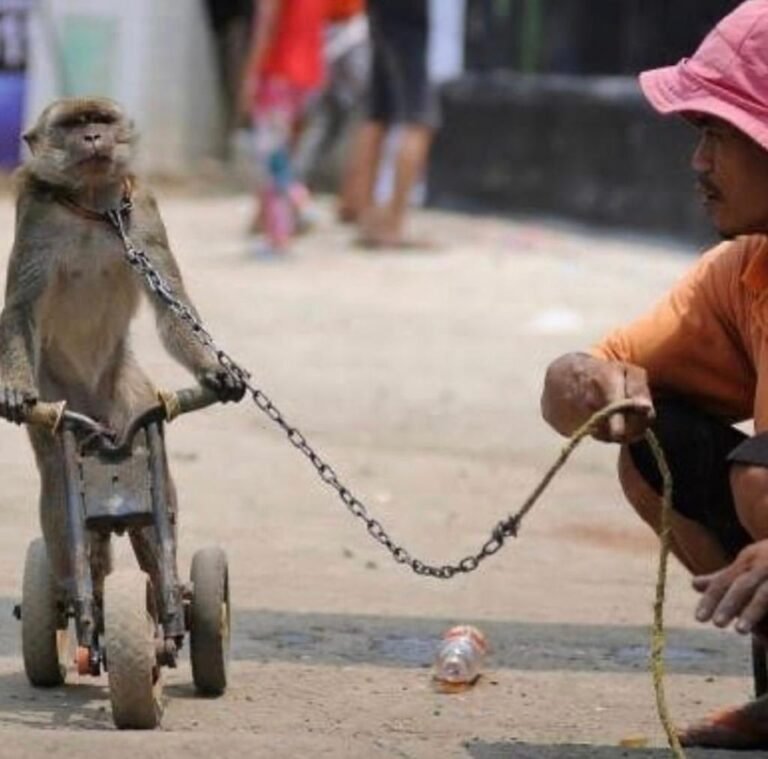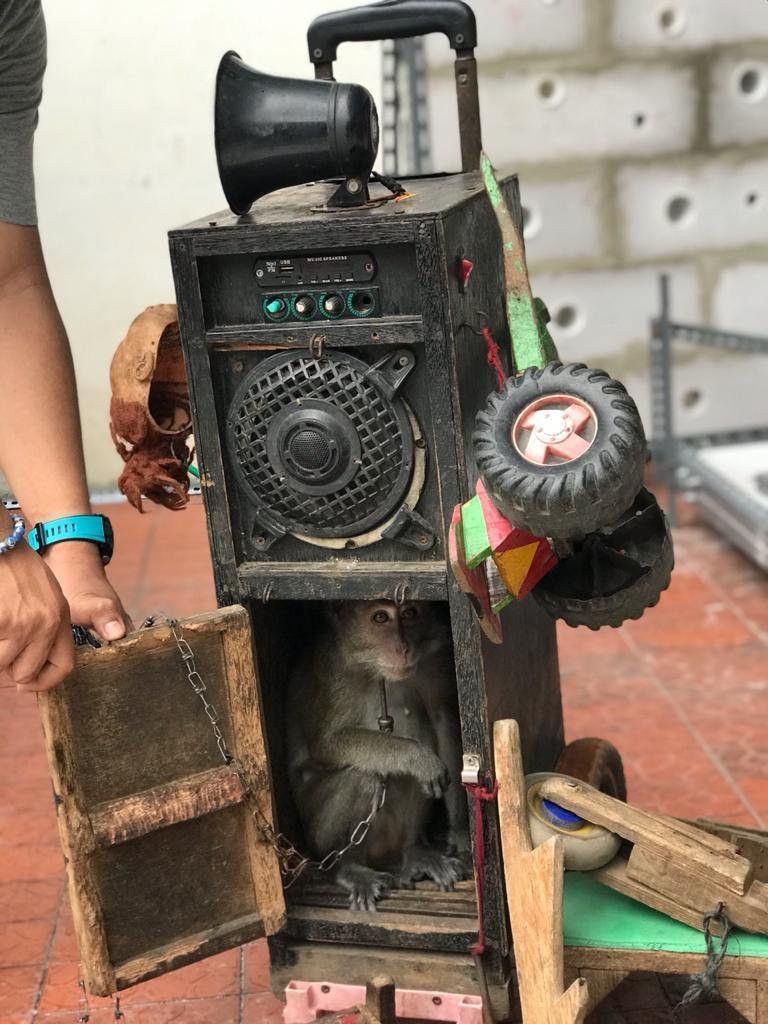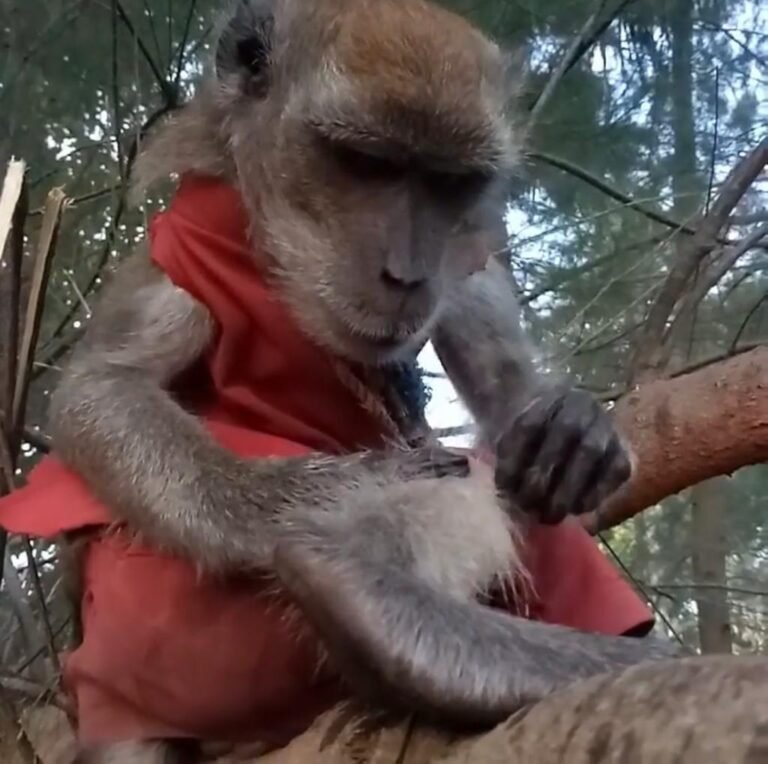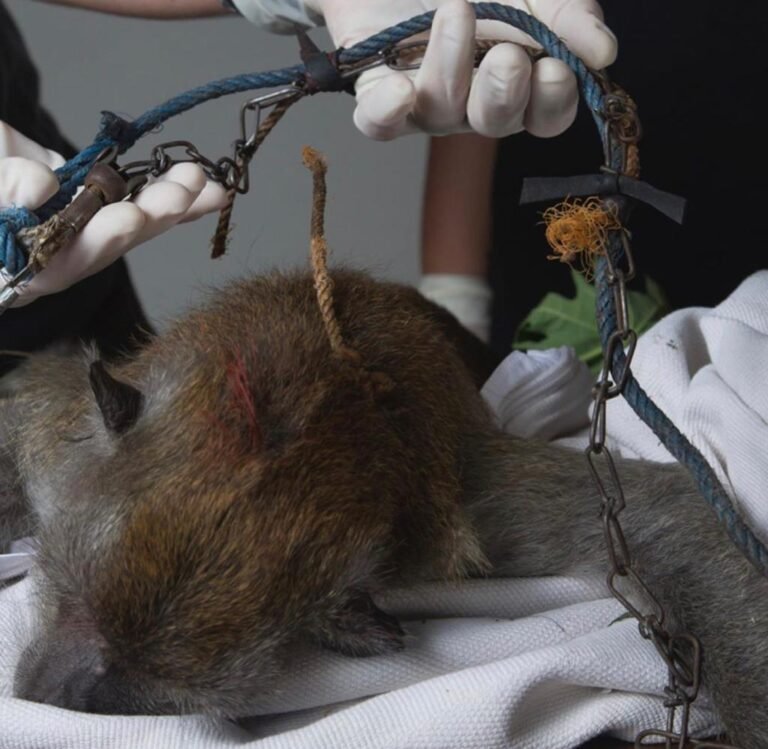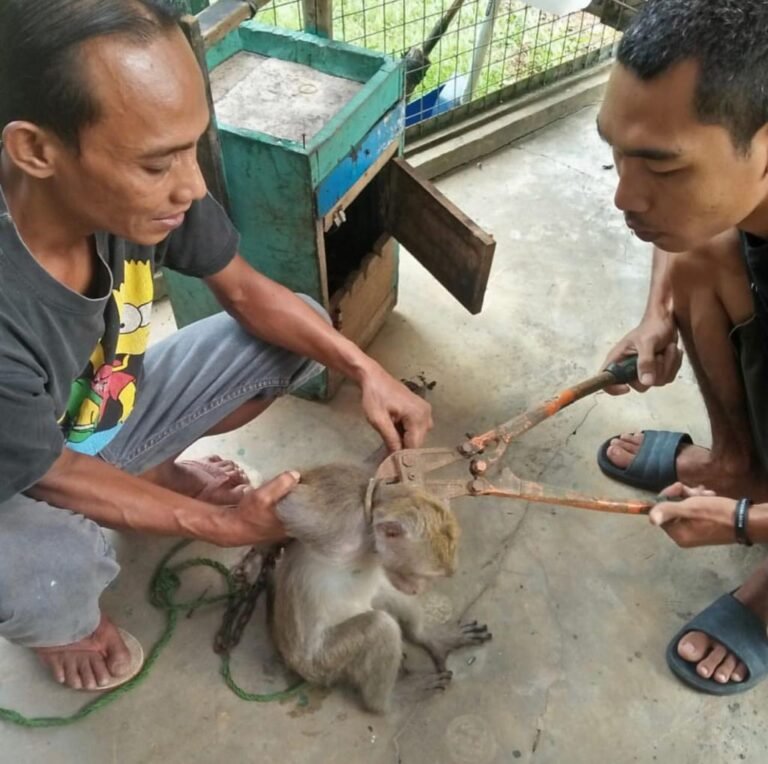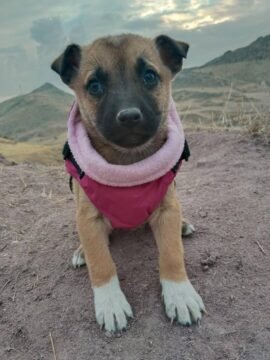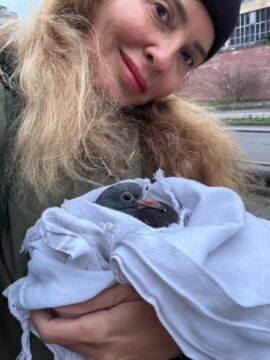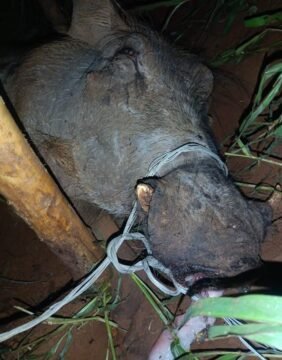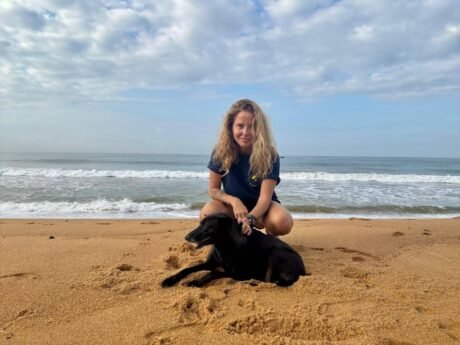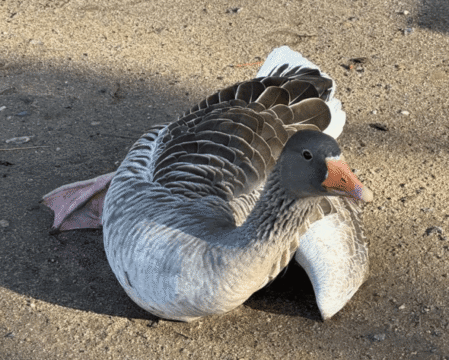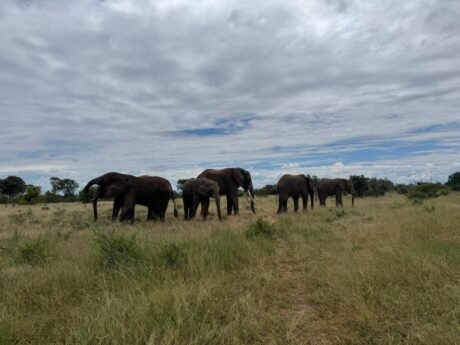The goal of this project is to ensure the implementation of enhanced welfare standards for Indonesian primates, with an initial focus on ending the exploitation of long-tailed macaques. Therefore, this project has a major focus on the dancing monkeys. This inhumane practice consists of juvenile macaques being forced to perform (dance, ride bikes etc) in the loud and crowded streets of Jakarta.
Wild At Life Project
Bebas Topeng Monyet
"Dancing Monkeys" Rescue & Rehabilitation
Activity status: Ongoing
Area of Activity: Jakarta, Indonesia
Known as “Topeng Monyet”, long-tailed macaques are extremely popular in Indonesia as they are used as dancing monkeys. Wild at Life e.V. and their partner Jarkata Animal Aid Network (JAAN) are working to end this practice.
Project Background
Each year, thousands of long-tailed macaques are bred and captured from the wild for sale in Jakarta where they face a life of exploitation and cruelty. The three common fates that await these primates are:
- Pet market (including dancing monkeys)
- Research (exported to labs)
- Food (Indonesian-based Chinese restaurants)
Over the years, JAAN observed a worrying increase in the use of these monkeys on Jakarta streets and has actively campaigned and lobbied to end the exploitation of macaques in Indonesia, in particular macaques used for the cruel ‘Topeng Monyet/Dancing Monkey’ trade.
Young macaques are caught from the forests by poachers and sold either directly by the trapper/poacher for 25.000 IDR (1,50€) or in Jakarta for a higher price of 70.000 IDR (4,26€). Macaques are sold in pet shops, bird markets, and even in front of shopping malls by street vendors. Baby macaques attract people because they are cute and cheap to purchase.
The macaques are almost always seen on short chains on the street and often in front of the owner’s house. As they grow, the chain grows into their skin, causing infections and tetanus. Macaques also form potential health hazards in urban areas due to the likeliness of disease transfer – something that we have experienced and are familiar with.
As a species listed under appendix 2 of the Convention on International Trade in Endangered Species of Wild Fauna and Flora (CITES), macaques should be traded with permits only. This means local traders are obligated to obtain a permit from the Forestry Department, which many of them don’t. In Jakarta alone, we encountered many cases where macaques escaped from their chains, our team is called to capture and relocate the primate.
Steps taken
JAAN was investigating the Topeng Monyet industry, uncovering information such as – where were they captured originally, where were they kept in Jakarta, who owned the monkeys, who trained the monkeys etc.
Since macaques are still not protected in Indonesia, the forestry department was uncooperative and uninterested in following up on our requests to ban Topeng Monyet. The process of catching the baby monkeys from the wild is in fact illegal, but legal action has never been undertaken by the forestry department against the capture of long-tailed macaques from Javanese and Sumatran forests. The local government and agriculture department was more interested in the ban and meetings continued with them while striving to get to former governor Fauji Bowo, as a ban on Topeng Monyet in Jakarta would be the most realistic goal of our efforts.
After many letters, finally, a statement was obtained from former governor Fauji Bowothat that Topeng Monyet should be banned in Jakarta, and we could count on help from the local government to confiscate monkeys from Jakarta’s streets.
40 Dancing Monkeys were confiscated with the assistance and cooperation of local government officials and police!
The monkeys’ “owners” were only given a warning and then set free. The monkeys and all attributes were seized.
What happens then?
The confiscated monkeys went through quarantine before being moved to specially-built socialization cages. The socialization of the monkeys was a hard and long process because they were traumatized animals, victims of the illegal wildlife trade. Thankfully, the team working with them are experienced in the handling and behaviour of macaques.
20% of the monkeys confiscated were found to have tuberculosis, and even hepatitis and leptospirosis were found in two individuals. This high proportion of monkeys carrying dangerous diseases proves the deadly potential of zoonotic diseases. We believe that the primates originally obtain these diseases from humans first, before spreading them to the public. So any child that came near the dancing monkeys was not only exposed to a bad form of education but also to various dangerous and deadly diseases.
The ban on Topeng Monyet has expanded from Jakarta to Bandung and Solo. We hope to see a permanent end to this practice all across Indonesia and will continue to campaign until done so.
Together we can do this!
We will continue to campaign for a total ban on keeping primates as pets and will continue to rescue, rehabilitate and release these primates back to the wilderness.
No results found.
This project is carried out in the following activity areas
Spread the news!
Help us increasing social commitment in saving endangered wild species. Express your support by sharing this article in your favorite social media channel.
Facebook
Twitter
LinkedIn
Pinterest
WhatsApp
Email
Most recent news
Project update
February 15, 2026
In Turkey, stray animals face unimaginable hardships every day—from scavenging for food to suffering from illness and injury. Many are victims of abuse, neglect, and cruel practices such as poisoning and mutilation. Recent government legislation allowing mass euthanasia of stray
News
January 25, 2026
City pigeons live a life few people truly see. Constant noise, traffic, hunger, cold, and danger are part of their everyday reality. Injuries are common, safe nesting places are rare, and survival often depends on luck rather than care. Yet
Project update
January 24, 2026
Snares are one of the biggest threats facing wildlife across Africa.Silent, cheap, and almost invisible, these wire traps are responsible for the suffering and death of millions of animals every year. Made from wire or steel cable, snares are easy
Project update
December 20, 2025
Every year, we travel to Sri Lanka to care for animals who would otherwise have no help. Our work focuses on stray dogs and cats living on the beaches and in nearby areas we are responsible for. We provide regular
News
December 13, 2025
We work with a local Frankfurt-based wildlife charity called Projekt Oase – Mensch und Tier im Einklang e.V., which focuses on protecting and rescuing wild waterfowl and other birds along the Main River. Projekt Oase is a small but passionate
Project update
December 5, 2025
At our sanctuary in Zambia, the team of Wild at Life e.V. has wonderful news to share. Our nine rescued elephants — all survivors of drought or poaching — are thriving, and they continue to enjoy their days in complete

